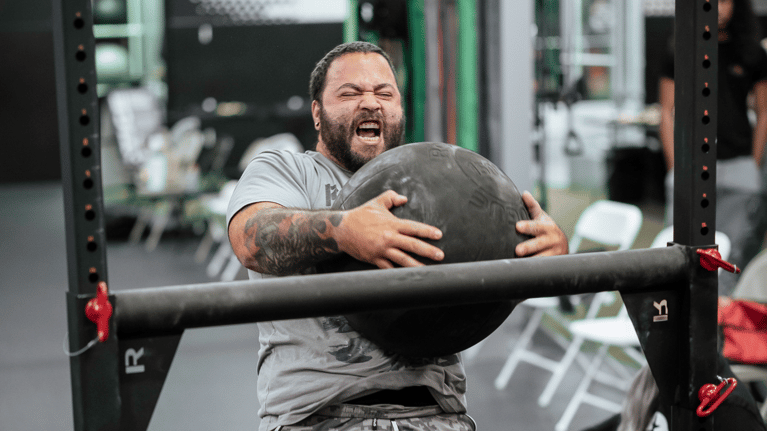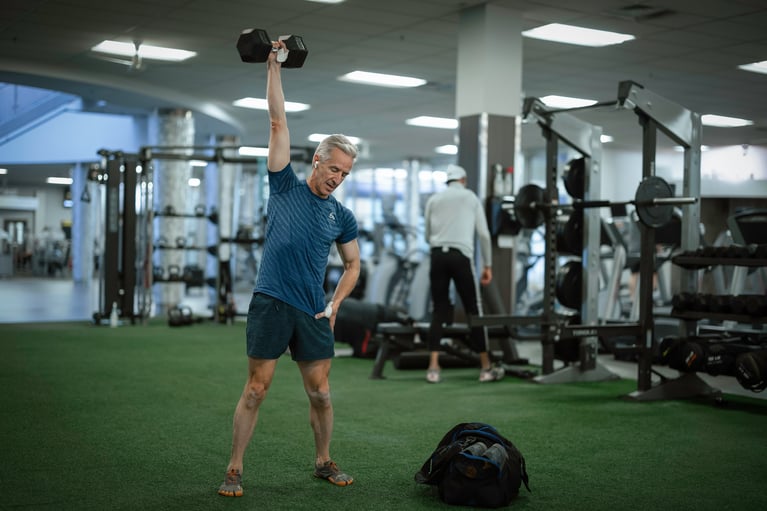
Despite the fact that there are many known benefits of strength training, many runners are still quite hesitant to include it in their training regimen. Common misconceptions about strength training amongst the running community can actually be detrimental to a runner’s overall performance and achievement. My goal as a strength and conditioning specialist is to help athletes unlock their full potential and make the most of their workouts. For runners, this entails dispelling the myths below and including strength training as a part of their regular workout schedule.
Myth #1 The best way to get better at running is to run more.
Many runners are falling into the trap of believing the statement above. The problem is that it seems logical; “if running is what I want to get better at then the more I do it the better I will get”. However, this mindset totally discounts the value of a well balanced training program that addresses many variables such as flexibility, strength, movement mechanics, endurance, power, balance, etc. You can run all day long, 7 days a week and if your form is poor, you lack strength or you have muscle imbalances (as most of us do), you will most likely find yourself tired, sore or injured, not improving.
While many of us start running to be fit, the truth is you need to be fit to run. You need a program that focuses not only on miles, pace and heart rate, but that allows you to make your body stronger, to make it move better and more efficiently and that reduces your likelihood of injury. Such a program will include strength training, flexibility work, focus on technique and even (dare I say it) REST.
Myth #2 Lifting will make me bigger and make it harder for me to run.
This is one of the most common things we in the coaching/training world hear from endurance athletes. I don’t want to get bigger! “Bigger = slower. Bigger = more pressure on joints. Bigger = less flexible”…and on and on. What these athletes fail to realize is that there is a certain exercise prescription involved in “getting bigger”, it doesn’t just happen because you start picking up heavy things. Building muscle requires a specific rep scheme, weight load and frequency, not to mention adjustments to nutrition and supplementation. There are also a lot of factors at play such as genetics, hormones, and gender. Ask any body builder and they will tell you, getting bigger is not easy.
Myth #3 I should lift light weight at high repetitions to increase my endurance.
As a runner, endurance is something in which you already excel. The goal of strength training is to reinforce and strengthen proper movement patterns (such as a squat, a hip hinge or a lunge) that will lead to better efficiency in your run. While being stronger will help you run longer and faster, it will also help you to have better running economy, better body balance, less impactful workouts during the week and less likelihood of injury. Weight training does not need to be done at high repetitions to achieve those results. In fact, it is recommended that weight training be done in short, intense bouts to achieve the best neuromuscular adaptations. Exercises should be done for six to ten repetitions with a strong focus on form and technique. As the exercise gets easier the athlete should increase sets and speed of the movement before increasing weight.
Myth #4 I don’t have time to strength train.
While this is a common mentality amongst many runners, the truth is that it is honestly just a matter of priority. I am certainly not suggesting that you spend less time at your job or with your family, but simply that you reevaluate your training regimen and find ways to include short intense bouts of strength training two to three times per week. Yes, this may mean you have to wake up earlier. It may mean you have to stay later. It may mean you have to shorten or take out a run and replace it with a lift. It DOES NOT mean that you miss a rest day. Strength training should never be included in place of rest which is highly valuable to improvement and injury prevention.
Don’t buy into the myths. The values of strength training as a runner include improved running economy, improved performance, and reduction of injuries. If you are not currently on a program try one out. You might be surprised.
Article contributed by Katie Allen
Katie Allen is a Regional Fitness Director at American Family Fitness in Virginia. She graduated from the University of Virginia in 2004 and went on to receive her Master’s in Exercise Science and Health Promotion from California University of Pennsylvania. Katie attended both schools on athletic scholarships, playing Division I volleyball at UVA and Division II volleyball and basketball at CalU. Katie has over a decade of experience in personal training, sports performance training, and fitness management. She has a passion for teaching and mentoring personal trainers that are new to the industry and even leads a certification course for the National College of Exercise Professionals. Katie specializes in weight loss, strength training, pre and post-natal training, and sports performance training, particularly for female athletes






